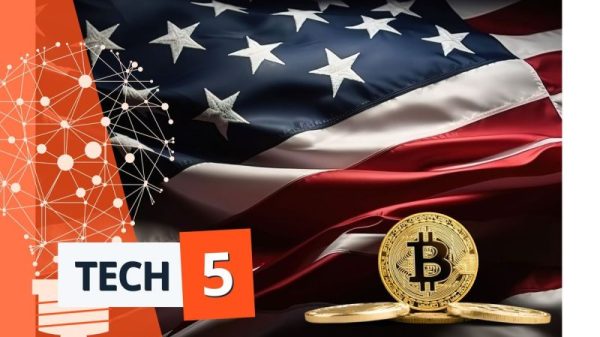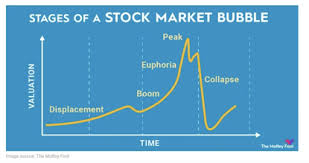JPMorgan Chase has rolled out a generative artificial intelligence assistant to tens of thousands of its employees in recent weeks, the initial phase of a broader plan to inject the technology throughout the sprawling financial giant.
The program, called LLM Suite, is already available to more than 60,000 employees, helping them with tasks like writing emails and reports. The software is expected to eventually be as ubiquitous within the bank as the videoconferencing program Zoom, people with knowledge of the plans told CNBC.
Rather than developing its own AI models, JPMorgan designed LLM Suite to be a portal that allows users to tap external large language models — the complex programs underpinning generative AI tools — and launched it with ChatGPT maker OpenAI’s LLM, said the people.
“Ultimately, we’d like to be able to move pretty fluidly across models depending on the use cases,” Teresa Heitsenrether, JPMorgan’s chief data and analytics officer, said in an interview. “The plan is not to be beholden to any one model provider.”
The move by JPMorgan, the largest U.S. bank by assets, shows how quickly generative AI has swept through American corporations since the arrival of ChatGPT in late 2022. Rival bank Morgan Stanley has already released a pair of OpenAI-powered tools for its financial advisors. And consumer tech giant Apple said in June that it was integrating OpenAI models into the operating system of hundreds of millions of its consumer devices, vastly expanding its reach.
The technology — hailed by some as the “Cognitive Revolution” in which tasks formerly done by knowledge workers will be automated — could be as important as the advent of electricity, the printing press and the internet, JPMorgan CEO Jamie Dimon said in April.
It will likely “augment virtually every job” at the bank, Dimon said. JPMorgan had about 313,000 employees as of June.
The bank is giving employees what is essentially OpenAI’s ChatGPT in a JPMorgan-approved wrapper more than a year after it restricted employees from using ChatGPT. That’s because JPMorgan didn’t want to expose its data to external providers, Heitsenrether said.
“Since our data is a key differentiator, we don’t want it being used to train the model,” she said. “We’ve implemented it in a way that we can leverage the model while still keeping our data protected.”
The bank has introduced LLM Suite broadly across the company, with groups using it in JPMorgan’s consumer division, investment bank, and asset and wealth management business, the people said. It can help employees with writing, summarizing lengthy documents, problem solving using Excel, and generating ideas.
But getting it on employees’ desktops is just the first step, according to Heitsenrether, who was promoted in 2023 to lead the bank’s adoption of the red-hot technology.
“You have to teach people how to do prompt engineering that is relevant for their domain to show them what it can actually do,” Heitsenrether said. “The more people get deep into it and unlock what it’s good at and what it’s not, the more we’re starting to see the ideas really flourishing.”
The bank’s engineers can also use LLM Suite to incorporate functions from external AI models directly into their programs, she said.
JPMorgan has been working on traditional AI and machine learning for more than a decade, but the arrival of ChatGPT forced it to pivot.
Traditional, or narrow, AI performs specific tasks involving pattern recognition, like making predictions based on historical data. Generative AI is more advanced, however, and trains models on vast data sets with the goal of pattern creation, which is how human-sounding text or realistic images are formed.
The number of uses for generative AI are “exponentially bigger” than previous technology because of how flexible LLMs are, Heitsenrether said.
The bank is testing many cases for both forms of AI and has already put a few into production.
JPMorgan is using generative AI to create marketing content for social media channels, map out itineraries for clients of the travel agency it acquired in 2022 and summarize meetings for financial advisors, she said.
The consumer bank uses AI to determine where to place new branches and ATMs by ingesting satellite images and in call centers to help service personnel quickly find answers, Heitsenrether said.
In the firm’s global-payments business, which moves more than $8 trillion around the world daily, AI helps prevent hundreds of millions of dollars in fraud, she said.
But the bank is being more cautious with generative AI that directly touches upon the individual customer because of the risk that a chatbot gives bad information, Heitsenrether said.
Ultimately, the generative AI field may develop into “five or six big foundational models” that dominate the market, she said.
The bank is testing LLMs from U.S. tech giants as well as open source models to onboard to its portal next, said the people, who declined to be identified speaking about the bank’s AI strategy.
Heitsenrether charted out three stages for the evolution of generative AI at JPMorgan.
The first is simply making the models available to workers; the second involves adding proprietary JPMorgan data to help boost employee productivity, which is the stage that has just begun at the company.
The third is a larger leap that would unlock far greater productivity gains, which is when generative AI is powerful enough to operate as autonomous agents that perform complex multistep tasks. That would make rank-and-file employees more like managers with AI assistants at their command.
The technology will likely empower some workers while displacing others, changing the composition of the industry in ways that are hard to predict.
Banking jobs are the most prone to automation of all industries, including technology, health care and retail, according to consulting firm Accenture. AI could boost the sector’s profits by $170 billion in just four years, Citigroup analysts said.
People should consider generative AI “like an assistant that takes away the more mundane things that we would all like to not do, where it can just give you the answer without grinding through the spreadsheets,” Heitsenrether said.
“You can focus on the higher-value work,” she said.
— CNBC’s Leslie Picker contributed to this report.


































